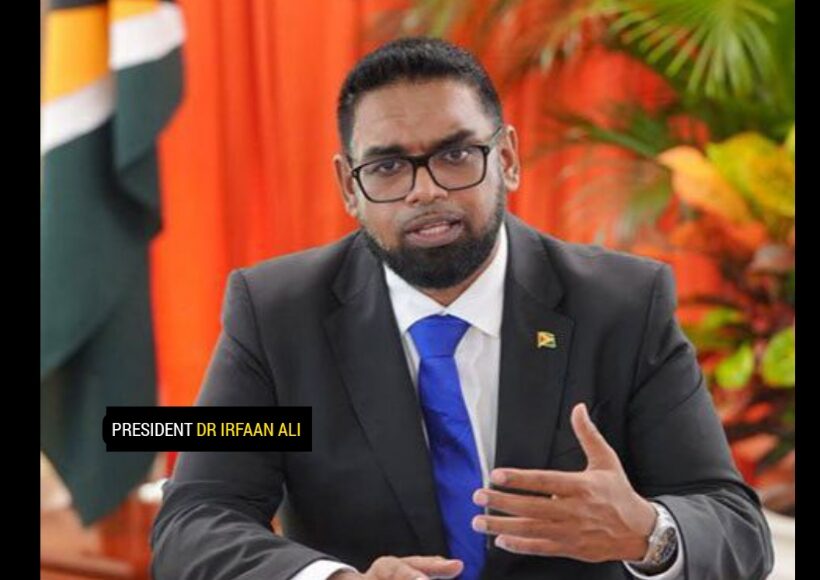Ensuring Guyana’s economy is diversified and not solely dependent on revenues generated from the oil and gas industry is key to ensuring the country withstands global oil shocks. This position was recently reiterated by President Dr Irfaan Ali.
The head-of-state, speaking during an episode of the Energy Perspectives Podcast aired on Sunday, underscored that the country must not become overly dependent on oil revenues, as external factors could impact crude prices and revenue streams.
Guyana’s Minister of Finance, Dr Ashni Singh had disclosed that the government is expecting lower revenues from the oil sector this year, due to an expected decline in oil prices – as a result of oil supply surpassing global demand.
President Ali noted that global shifts in energy policies and trade strategies must be carefully considered in Guyana’s economic planning. “First of all, you know, the world and the global economy is changing rapidly, there are create challenges, there are climate challenges, there’s a redirection of investment in many corners of the world,” he said.
He highlighted that the U.S has been advancing policies to ramp up its oil production while engaging in negotiations with major Middle Eastern producers to further increase supply. These developments, he pointed out, have direct implications for global oil prices and, by extension, Guyana.
“So, we have to be aware of these policy interventions, these trade interventions, and ensure that we plan ahead of the interventions that all of these interventions are taken into our expenditure profile, they are taken into our revenue projections,” Ali explained.
Further, he noted that while Guyana’s oil and gas sector is experiencing rapid expansion, the government is committed to responsible resource management. To this end, President Ali stressed the necessity of investing in other sectors to sustain economic stability during periods of oil price volatility. “That is why it is so critical for us to pursue economic diversification and build out the other segments and sectors of our economy, so that in times of shock or in times when the revenue is affected based on the global pricing mechanism that the economy can withstand those shocks,” he stated.
The president also pointed to the importance of regional integration in fostering economic growth beyond oil. He cited major infrastructure projects such as the Linden to Mabura Hill Road and Guyana’s connection with northern Brazil as key to unlocking new economic opportunities.













